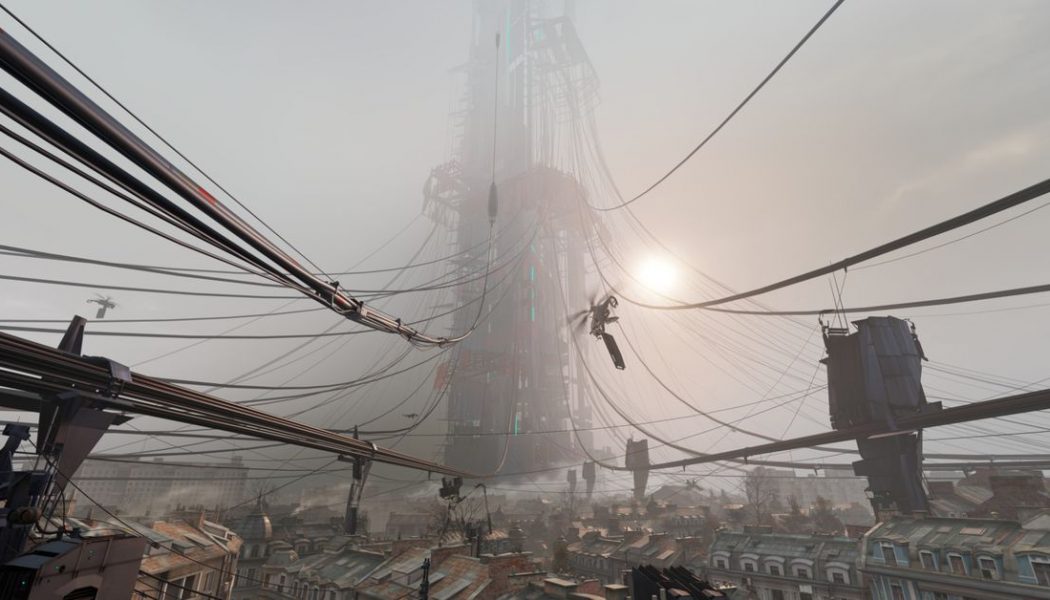
Half-Life 2 is one of the last things that makes me feel like a fan, and that’s why I was afraid of Half-Life: Alyx.
Writing about video games changed my relationship with the medium. I’m used to analyzing exactly why I like my favorite games. Meeting developers has helped me see their work as an idiosyncratic human creation, not a magical self-contained artifact. I’ve encountered the worst of fan culture, and it’s made me wary of deep, unconditional, inarticulable loyalty to media.
For some reason, though, Half-Life 2 and its follow-up episodes are special. They’re not my favorite games, or even my favorite Half-Life games. Like a robot short-circuiting while trying to articulate the concept of love, I’m incapable of explaining my deep investment in the story of a crowbar-wielding physicist named Gordon Freeman fighting an oppressive alien regime with his tech-genius partner Alyx Vance. But I played the games in college, and I somehow developed the kind of obsession that leads you down a rabbit hole of Garry’s Mod fan comics because you just want to be around more Half-Life. A decade later, long after I gave up on the fabled Half-Life 3, Gordon and Alyx still felt like old friends.
When Valve announced Half-Life: Alyx for virtual reality, promising a Half-Life 2 prequel that would address the series’ cliffhanger ending, I knew I’d end up reviewing it. And part of me dreaded the prospect. At worst, the game might be terrible. Even if it was okay, I worried encountering a new Half-Life game would expose my fandom as simple nostalgia — something I could remember feeling, but only enjoy as an echo from a decade ago.
Half-Life: Alyx was neither terrible nor just okay. I wrote about the game at length in March, explaining how good it is — both as a VR experience and a first-person shooter. Alyx recaptures the seamless level design that Valve perfected in earlier Half-Life games. It combines Half-Life 2’s physics system with the pleasure of having actual motion-tracked “hands” through VR controllers. Like Half-Life 2, it applies that ethos to both explicit puzzles and random, funny mechanics like grabbing hats to protect you from overhead enemies.
Alyx is one of several good VR shooters. But it has a unique design that’s intuitive yet realistically clumsy. To fire a gun, you have to hit a button to eject a magazine or crack open a chamber, grab new ammunition from behind your shoulder, fit the ammo into the gun, and cock it before firing. While that’s obviously still a simplified take on real firearms, it’s a fun and unique skill to master, as well as a fairly challenging one in the heat of combat. Alyx is long for a VR game — which means it’s about as long as a traditional mid-length shooter — but the system never gets old.
Unlike most of my colleagues’ favorite games this year, lots of people can’t easily play Alyx, since the game requires both a wired VR headset and a gaming PC. But it’s only become more accessible since launch. It’s easier to find a headset with the new wired HP Reverb G2 and the convertible Oculus Quest 2, and we’ve seen some restocks of Valve’s Index, the best way to play the game. I went back to Alyx this summer with the Quest 2, and nearly all the inconveniences I complained about in March were fixed or improved. I’m hoping Alyx gets more of the attention it deserves in 2021.
But Alyx is my game of the year for more personal reasons, too. Because as it turns out, I find Half-Life’s world as compelling in 2020 as I did years ago. (Well, maybe not compelling enough to dig up all the old comics again.) Like Half-Life 2, it’s about a post-apocalyptic world that combines decaying brutalism with serene natural landscapes and lots of alien weirdness. Its story — surprisingly sweet, serious but unpretentious, and sometimes endearingly corny — focuses on Alyx Vance and her bonds with an older generation that still remembers the pre-alien invasion world.
Alyx concludes with its own cliffhanger involving the G-Man, a powerful and enigmatic agent of some unknown power. It also teases a true sequel to Half-Life 2. I’m not going to raise my hopes too much just yet. But I’m unreasonably excited already, because seriously, who is that guy working for? Why is he so interested in Alyx? What’s his deal?
And again, I can logically explain why Alyx is great, but not quite why it makes me so happy. 2020 has offered lots of strong contenders for the year’s best games; I’m certainly on board with universally beloved picks like Hades or the creepy and narratively innovative World of Horror. But Alyx is the only game that lets me hang out with a mystical three-armed alien before getting my face eaten by a headcrab, and that feels just as good as I remember.










